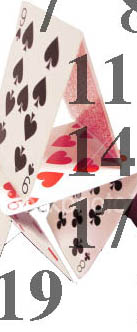
I have suggested that the Literacy Autobiography Assignment could be an occasion for experimenting with different catalysts and formats for reflection and, thus, serve as the beginning of a dialogue with teachers about how students' previous experiences with learning and literacy impact their performance and participation in school. For this to happen, I suggested that students have to confront what is painful and what is pleasurable about literacy and learning. But really what I want to suggest is that a single assignment cannot achieve too much in terms of helping students become better learners. Really, a whole course could be built around the issue of literacy development, with individual projects deriving from the items in Brandt's literacy account:
- the education of your family
- role(s) of langauge generally (including talk) in your family and immediate social group
- role of written langauge in family
- role of written language in play and friendships
- school-based reading and writing
- self-sponsored reading and writing
- role of libraries.
Such a course could easily incorproate EL by including field trips to daycares, afterschool programs, and/or childrens' musems. To give students a broad range of theoretical perspectives, readings could be drawn from narratology, game theory, EL, cultural studies (of hobbies, new media, etc). Writing projects could range across the spectrum in terms of tone/register/audience and media/genre and a final portfolio could contrast the pleasures and pains of different kinds of production.
One: Situating Embodied Learning
-
Identity and Learning: “Follow What I Am Doing: Do The Rules That I’m Doing: It’s Very CoM-pli-cated”
- Producelike Behavior: "Why Do The Make Queen Better Than Jack?"
- Conclusion: "The Bricolage, The Music, The Movement"
Three: Implications for the Literacy Autobiography Assignment
